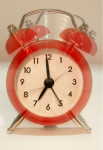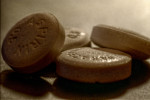
Back Pain
Early physiotherapy for lower back pain has extremely positive outcomes says new study
 After an initial episode of acute, nonspecific low back pain, early physiotherapy that adheres to guidelines results in substantially lower costs and reduced use of health care resources over a two-year period, experts report in BMC Health Services Research.
After an initial episode of acute, nonspecific low back pain, early physiotherapy that adheres to guidelines results in substantially lower costs and reduced use of health care resources over a two-year period, experts report in BMC Health Services Research.
A US research team analysed 122,723 people who sought help after an initial lower back pain episode and received physiotherapy within 90 days. Continue reading
Depression often co-occurs with arthritis and arthrosis says new research
 People with symptoms of depression have increased risk for arthritis, arthrosis and other physical diseases, says a study published in Frontiers in Public Health.
People with symptoms of depression have increased risk for arthritis, arthrosis and other physical diseases, says a study published in Frontiers in Public Health.
A research group looked at data from 14,348 people aged 15 years and older who lived in Switzerland.
About one-third-of people with depression also had at least one physical disease. Continue reading
Paracetamol may be ineffective for back pain and osteoarthritis
 Paracetamol may not offer effective pain relief for back pain or osteoarthritis, according to a review published in the British Medical Journal.
Paracetamol may not offer effective pain relief for back pain or osteoarthritis, according to a review published in the British Medical Journal.
Experts analysed studies involving over 5,000 patients that looked at the effects of paracetamol use compared with a pretend pill. They found that paracetamol had no effect for people with lower back pain and did not reduce disability or improve quality of life. Continue reading
Phone counselling reduces pain and disability after surgery
 A short series of phone conversations with trained counsellors can substantially boost recovery and reduce pain after people have back surgery, experts report in the Archives of Physical Medicine and Rehabilitation.
A short series of phone conversations with trained counsellors can substantially boost recovery and reduce pain after people have back surgery, experts report in the Archives of Physical Medicine and Rehabilitation.
A total of 122 people aged 46–72 years who had surgery to correct spinal stenosis (degeneration of the spinal bones and painful compression of the spinal cord) were split into groups. Everyone was prescribed either home exercise programmes or physiotherapy. About half also received a series of phone counselling sessions from a trained spinal surgery counsellor to discuss the importance of exercise in their recovery. Continue reading
UK local authorities missing the health needs of people with arthritis and back pain
 Many communities are being failed by local authorities in England, says a report from Arthritis Research UK, which highlights that 26% of local authorities did not mention arthritis in their Joint Strategic Needs Assessments. And 62% of local authorities missed back pain in their assessment of the health needs of the communities that they serve. Continue reading
Many communities are being failed by local authorities in England, says a report from Arthritis Research UK, which highlights that 26% of local authorities did not mention arthritis in their Joint Strategic Needs Assessments. And 62% of local authorities missed back pain in their assessment of the health needs of the communities that they serve. Continue reading
